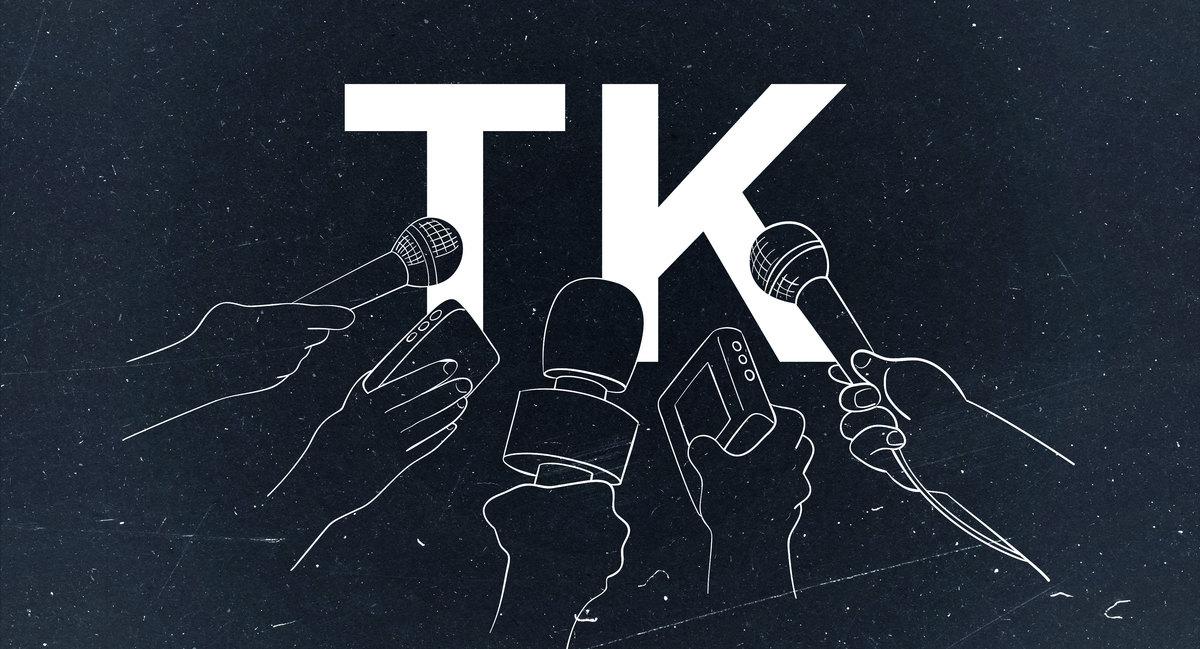Josh Katzenstein Used to Be a Sportswriter. Now He Sells CBD. And He’s Happy.
For now, at least. The New Orleans Saints journalist who lost his job this year has made a career transition. And he’s far from the only writer forced to redefine their lives in 2019.Josh Katzenstein used to be a beat writer, and when he sells CBD products to vape shops, he still acts like one. “The skills,” said Katzenstein, “are super-transferrable.”
For example, when Katzenstein covered the Saints for the New Orleans Times-Picayune, he always tried to gauge how much he could pester a source before he became annoying. These days, Katzenstein employs that spidey sense when pitching a vape shop owner on his line of topicals and recovery creams.
As a sportswriter, Katzenstein was always looking for a piece of information that gave him an edge. As a CBD salesman, he learned that the Louisiana Office of Alcohol and Tobacco Control had a list of shop owners who’d applied for a license to sell CBD. Katzenstein could visit the shops before they got their licenses to try to outflank his competitors.
One balmy December day, Katzenstein let me tag along on the sales calls that comprise his post-sportswriting life. He pulled up outside a vape shop west of New Orleans, popped his trunk, and grabbed a stack of brochures titled “CBD Fact Sheet.”
“Filling brochure holders was not something I ever envisioned myself doing,” he said. “But here we are.”
Katzenstein had a very 2019 kind of sportswriting experience. “I felt as safe as anyone could feel at a newspaper job,” he said. “I was the lead Saints writer for the biggest newspaper in New Orleans. As long as that newspaper existed, there was going to be a Saints reporter. Unfortunately, some things happened, and that newspaper no longer exists.”
In May, the Times-Picayune was sold to The Advocate, a local rival. All 160 of the Times-Picayune’s employees were laid off (and about two dozen were rehired by The Advocate). Though the Times-Picayune and its digital arm live on as brands, they don’t exist in the same way. They’ve been replaced by the DNA of The Advocate.
Katzenstein, who is 30, is happy with his new job. He isn’t looking for sympathy. But his trajectory says a lot about the state of the industry.
I think sports journalism has been broken for a while. A lot of coaches and executives are using the playbook that Trump is using in terms of intimidating reporters and even calling out reporters in public settings.Josh Katzenstein, former Times-Picayune reporter
In one sense, 2019 will be known as the year sportswriters from the Times-Picayune to Sports Illustrated were laid off by ruthless media overlords. But it wasn’t just the churn that was striking. What was striking was watching a generation learn there wasn’t necessarily going to be another, similar job waiting for them—at least, a job that was immune to the same forces.
Katzeinstein said he had a beat writing offer and still writes a weekly betting column for Bookies.com. But he took a full-time sales job with a CBD start-up called Crescent Canna. So far, he likes the work. His schedule is predictable. The money is about the same as he made at the Times-Picayune (though without health insurance and a 401K) and his salary doesn’t have a ceiling.
“I have a bunch of irons in the fire,” said Katzenstein. “If a few of them hit, all of a sudden I’ll be like, ‘How was I making so little in a different industry?’”
Katzenstein would probably take the right sportswriting job in New Orleans if it came along. He’d trade his audience of vape shop owners for Drew Brees and Alvin Kamara. But that’s not where his mind is right now.
“I went into it thinking that I was going to do this for one or two years and try to make a bunch of money and then hopefully get back into journalism,” he said.
“If I can be successful selling CBD, I might be able to be a salesperson for the rest of my life.”
There are a lot of reporters like Katzenstein who thought of sportswriting not as a gig but as something like the pursuit of an ideal. They couldn’t imagine doing anything else. 2019 is the year sportswriting became such a flimsy profession that they started imagining.
If you watched the churn at Sports Illustrated, Deadspin, SB Nation, and Yahoo, Katzenstein’s story will sound familiar. In 2016, after Katzenstein had covered the Lions for four seasons at the Detroit News, the Times-Picayune put him on the Saints beat. As a New Orleans native, it was his dream gig. Katzenstein had first appeared in the pages of the Times-Picayune at age 7, wearing a yarmulke.
Over the past three seasons, the Sean Payton Saints came back to life. Last year, the team was a botched late-game pass interference call away from the Super Bowl. In that era of good feelings, Katzenstein’s coverage stood out for its toughness and skepticism. “He asked the question that Payton would say FU to, but it basically had to be asked,” said Scott Kushner, who covers the Pelicans for The Advocate.
“You could never argue it wasn’t rooted in a very idealistic view of journalism,” said Jeff Duncan, a former Times-Picayune columnist who now writes for The Athletic. “He really loved journalism and was really striving to find the truth or the close semblance of the truth.”
As we drove between vape shops from Houma to Destrehan, Katzenstein talked about the state of his former industry. “I think sports journalism has been broken for a while,” he said.
“A lot of coaches and executives are using the playbook that Trump is using in terms of intimidating reporters and even calling out reporters in public settings.”
That strong-arming changed the industry in two ways. First, it re-wired the brains of some readers so that they saw reporters as the enemy, second, it made others see them as annoyances who get in the way of a team’s success.
“It’s also problematic that many reporters give in to that intimidation for whatever reason,” said Katzenstein. “Whether it’s fear of retribution from the team in terms of access, or whether it’s a negative response on Twitter from the fan base.” Or whether it’s because their media company has been so weakened they feel they have no choice.
There’s still plenty of great sportswriting in the world, Katzenstein allowed. But one effect of the clampdown is that many reporters have recrafted their writing to please Twitter. “I just think there are a lot of reporters that kowtow to either the team or to the fans because it’s just easier to do that and not deal with the criticism,” said Katzenstein.
He added: “People don’t want to say something or report something that isn’t going to get an overwhelmingly positive response.”
Like SI, the Times-Picayune had an indescribable amount of capital with its readers. For years, the paper had the “highest market penetration of any major U.S. daily,” according to the Columbia Journalism Review. In 2012, the paper’s owner, Advance publications, made a series of moves it sold as a “digital-first” strategy. Advance laid off staff and cut the print paper to three days a week. That allowed a Baton Rouge–based paper called The Advocate to move into New Orleans. Owned by a businessman named John Georges, The Advocate waged a newspaper war in a city that was barely large enough to support a single paper.
On May 2, Katzenstein was at Jazz Fest when he looked at his phone and saw emails from his HR director and the paper’s editor-in-chief. A few hours later, an Advance executive stood in the Times-Picayune newsroom and told the staff the paper had been sold to The Advocate.
“I was just so confused,” said Katzenstein. “It was unlike anything I’d ever had to deal with. I just wanted a drink.”
Katzenstein observed the rites of the newly jobless. He tied one on with his colleagues at The Howlin’ Wolf. He put the news on Twitter and got dog-piled by positive vibes. Katzenstein told me: “It’s the weird paradigm of, ‘I’m losing my job and all these people are so sad for me. Why am I losing my job?’”
Everybody on the Times-Picayune sports staff started scrambling. The Athletic’s New Orleans branch added writers like Duncan and sports editor Jennifer Armstrong, effectively making it the Times-Pic sports page in exile. But The Athletic couldn’t hire everybody. Of the paper’s 11 sports department employees, three went to The Athletic; four went to The Advocate; and the rest are scattered around New Orleans, in various states of employment.
Katzenstein had a local offer to cover the Saints that would have cut his pay. He got interest from newspapers across the country. “I just couldn’t picture myself leaving New Orleans for a job that could potentially have the same ending,” he said.
Meanwhile, his pals Joe Gerrity, Sean Partridge, and David Reich were setting up a CBD company called Crescent Canna. Since the 2018 federal farm bill took industrial hemp off the controlled substances list, CBD (or cannabidiol) start-ups have been selling everything from topicals to oil for horses. Katzenstein and I walked into one store that carried Lawrence Taylor’s “Pain Master” line of cream and oral drops.
The FDA says it has little data about CBD’s usefulness or side effects. So a company like Crescent Canna is careful to adorn its packaging with terms like “recovery” instead of “pain relief.” Katzenstein said he uses the company’s products and believes in them, which makes him a better salesman. After this fall’s vaping panic, he has noticed vape shops pivoting toward CBD.
That was my life. Wake up, check Twitter. Check various outlets. My phone was set loud to wake me up in case something happened. I was tethered to the job at all times. But I loved it.Katzenstein
The vape shops Katzenstein took me to were filled with Monster Energy drink coolers and yapping dogs and curtains to backrooms that were quickly drawn and the inevitable posters for Louisiana Comic Con. Katzenstein worked the stores like he once worked a locker room. Like a good journalist, Katzenstein had a way of being persistent without seeming needy, so you hardly noticed he was pulling information out of you. “We’d love to get you some of our tinctures, too,” he told one store employee.
Katzenstein’s job is commission-based. (Gerrity set his first commission structure based on him earning $150,000.) Katzenstein also gets bonuses for helping Crescent Canna with marketing and other operations. He used his NFL connections to convince former Saints quarterback Bobby Hebert to become a Crescent Canna spokesman. Now, Katzenstein passes out posters that feature a smiling Hebert extolling the virtues of Crescent’s recovery cream.
In the office, Katzenstein’s coworkers heard the way he works a phone, cold-calling a potential customer in Dallas or Mobile and keeping them on the line like they were old pals.
“Dude, you’re really good at this,” one of them said.
“Yeah,” said Katzenstein. “It used to be my job.”
The Saints’ 11-3 season sits somewhere in the back of Katzenstein’s mind. He watches all the games and occasionally finds himself thinking about how he would have approached a story. As we drove back to New Orleans, he got an email about a media event. “Oh, I could interview Terron Armstead,” he said.
Post-sportswriting, Katzenstein has lost nearly 20 pounds. He deleted push alerts from his phone. He can go on a date without worrying that an Adam Schefter tweet will send him scrambling into action.
“That was my life,” he said. “Wake up, check Twitter. Check various outlets. My phone was set loud to wake me up in case something happened.
“I was tethered to the job at all times. But I loved it.”
In fading industries, they talk about a worker’s “transferrable skills.” Katzenstein found he had a lot of them. On the Saints beat, he adjusted his demeanor slightly depending on whether he was talking to a team executive or a Saints player. Now, he makes a similar tweak when he talks to a shop owner versus the guy who works the counter.
“If someone turns him away right away, he’s going to want to figure out why,” said Gerrity. “He’s going to want to get to the bottom of it. And if he can, he’s going to want to try to fix that problem. I think that’s probably what a good sportswriter does, too.”
The intoxicating rush of a big sale, said Katzenstein, is similar to the rush of breaking a story. “But there are so many other things that give you a rush in journalism,” he said. “Just one good interview gives you a rush.”
“I also just miss writing,” he continued. “It became a very soothing thing for me. Even though a lot of the time I was doing it under immense amounts of pressure. But it was still something that made sense to me.”
What if you never go back to journalism? I asked Katzenstein before we sat down to lunch.
“Then I’m hopefully making a lot of money,” he said, with a big laugh.
But seriously … would somebody like you, who crafted their identity around being a journalist, and who was really good at it, be OK calling it a career?
“No, I wouldn’t be OK,” said Katzenstein. “I think it’s always going to have to be in my life to some extent.”
“I like breaking down a game,” he said. “I like looking for a story that someone else might not see. That love is not going to go away.”
Katzenstein put it to me like this: What if you, a journalist, won the lottery? Money didn’t matter anymore. You might not stop writing, but you’d be more selective about your assignments. Katzenstein hopes to get to a point when he thinks about his writing like that, only the money would come from sales rather than Powerball.
Recently, Katzenstein has reached out to other sportswriters to see if anyone who doesn’t have a job might want to sell CBD. Sportswriters have many of the necessary skills. They could train in New Orleans and then go back to their home states, samples in tow. Sales could keep them afloat till a new gig opens up or, as Katzenstein has thought about, allow them to change careers completely.
That ability to delicately pester a source? To nurture a professional relationship until it becomes something like friendship? Katzenstein knows those skills are still valued in 2019, if not always by his former profession.



